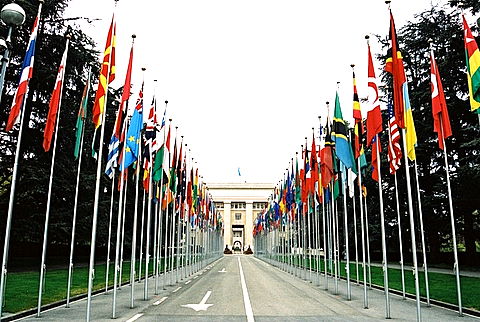United Nations Human Rights Council: 15th Session
Agenda Item 9: ID SR on Racism and Related Intolerance
Oral Intervention- Cairo Institute for Human Rights Studies (CIHRS)
28 September, 2010
Delivered by: Laila Matar
Thank you Mr. President,
We welcome both reports submitted to this session by the Special Rapporteur on Racism and Related Intolerance. We note with concern the instances of attacks or incitement to hatred and violence documented on religious defamation. The fact that these cases have been documented in the United Kingdom, Germany, Saudi Arabia, Pakistan, and Egypt, prove religious discrimination to be a growing challenge in every region.
This is especially true in the Arab region where religious intolerance and discrimination, including by extremist religious groups, fuels a large amount of human rights violations, social instability, and armed conflict. In the report on Extremism the SR asserts, “Extremist parties, movements and groups… frequently incite discrimination by emphasizing that they are the only legitimate holders of the national identity of a given country… In extreme cases, this unfortunately led to a strict, and sometimes irreversible… social exclusion and discriminatory treatment vis-à-vis certain individuals and groups of individuals.” In countries such as Bahrain, Saudi Arabia, Yemen, and, to a lesser extent, Egypt, this practice has in fact moved beyond the social level and has been integrated into the legal and political structures of the state itself.
Unfortunately, many states within the Arab region adopt a state-sponsored “official” interpretation of Islam in both law and practice and then proceed to carry out systematic and widespread discrimination against all other religious followers, including other sects of Islam. Muslims who belong to “unofficial” branches of Islam tend to suffer from such practices. In Bahrain the situation is particularly critical as a minority Sunni population has monopolized power over a majority Shiite population and systematically disenfranchises Shiite adherents from employment and representation in state institutions. Similar systematic discrimination is carried out in Saudi Arabia against a minority Shiite population.
It is unfortunate that the Organization of Islamic Conference often fails to deal with wide-spread state sponsored discrimination against Muslims and other religious followers carried out by its own member states. CIHRS believes the failure to do so has only encouraged such discrimination and, as such, has contributed to many of the resultant human rights violations and social unrest within the Arab region.
Has the SR requested visits to any countries within the Arab region in order to explore the issue of religious intolerance and discrimination? If so, will the SR be visiting any of these countries in the future?
CIHRS urges all member states of the Arab Region to issue a standing invitation to the SR on religious discrimination and to end official state sponsored discrimination against Muslims and other religious followers who do not adhere to state interpretations of religious doctrine.
Thank you Mr. President
Share this Post

